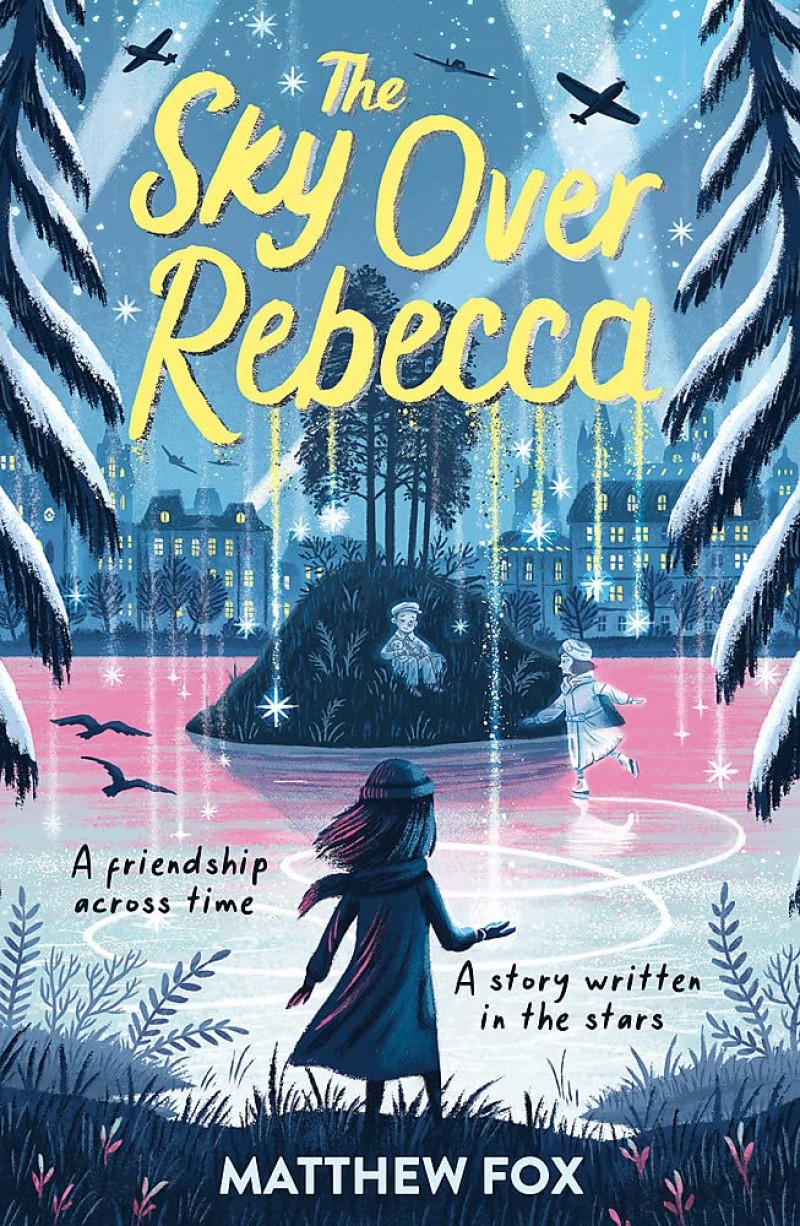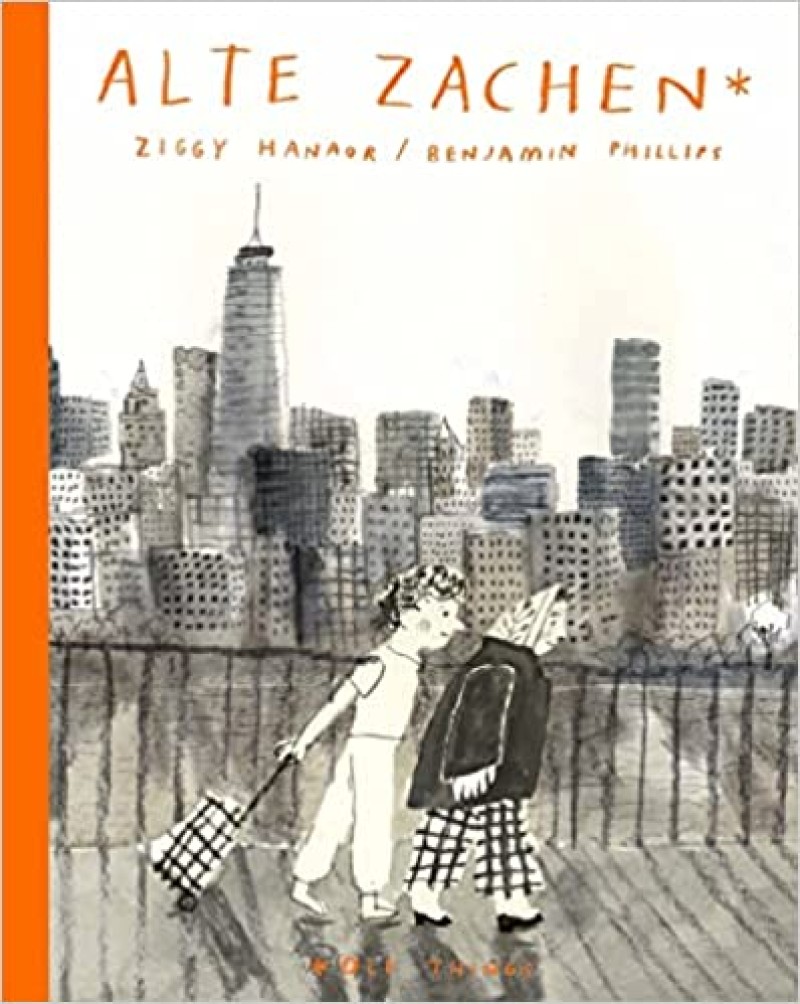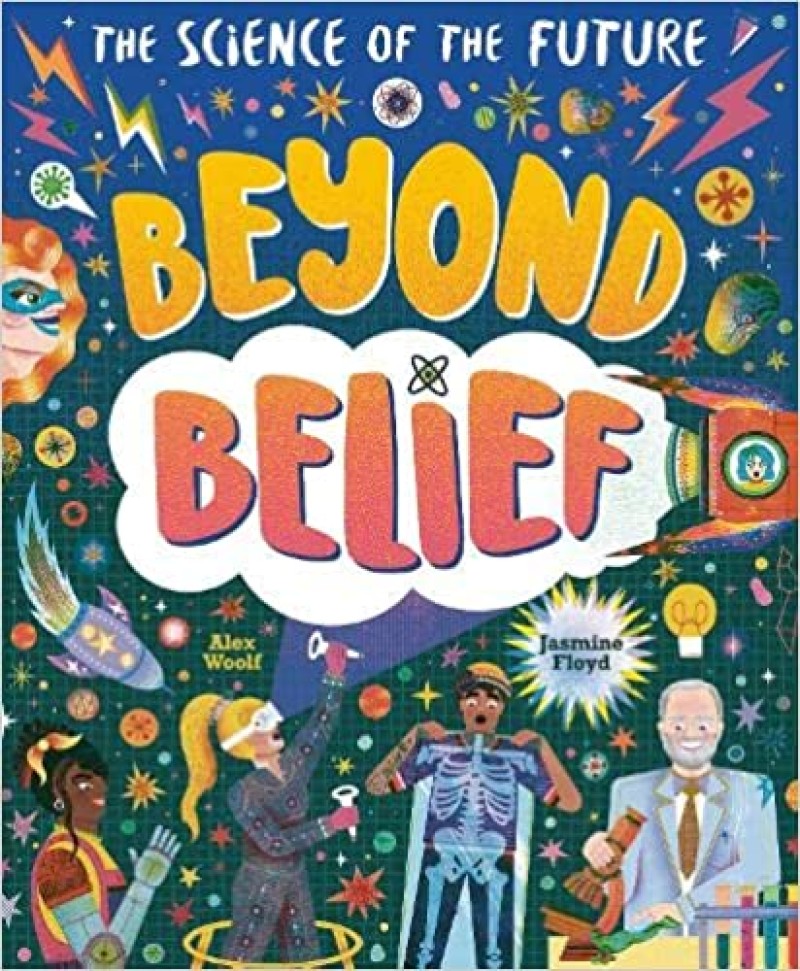Posted on: 27/04/2022
The passing of time, looking to the past for lessons and answers and projecting into the future are often the most engaging themes in literature. For some, being transported into a world that once existed is powerful in terms of understanding how we’ve come to be where we are. The opportunities to explore historical contexts and lessons from history will always be there: sometimes they just need to be found. The sense of entering a world that has not yet existed can be fuel for excitement and escapism for readers who want to immerse themselves in fantasy. But exploration of the same world, from another’s perspective, can nurture empathy and, in understanding events from the past, we can glean insight into someone else’s current reality. The three texts we’ve selected for this review perfectly encapsulate these ideas of past, present and future and empathy; always empathy.
The Sky Over Rebecca by Matthew Fox (Hodder Children’s Books, 14th April 2022)
The concept of this text is fascinating: both time and space are transcended in a way that pairs fantasy with reality. Lonely Kara lives in Sweden. She has no friends and the evenings spent alone waiting for her mum to return from work fill her with the sensation of a ‘wind blowing through’. Her misery is amplified whenever Lars – an ignorant bully who seems to have taken exception to Kara with her dark hair and ‘different’ behaviours – is around. Then through the lens of her telescope one night, she sights a mysterious girl. At first, although Kara can see the girl, she – Rebecca – cannot. But Kara finds a way to leave her reality and move into the past where she discovers that Rebecca and her brother Samuel are Jewish children ‘stuck’ in the terror of occupied Europe, desperately trying to evade capture by hiding upon an island in the middle of a frozen lake. Starving and freezing cold, not only are the children trapped in the sense that they need to stay hidden from the Nazi soldiers, but they are also trapped in a time-loop, living through the same event over and over. But Kara helps Rebecca find her strength and, in doing so, finds her own courage. Can she help the siblings escape on a plane that never seems able to land? Can the stars – light-years away – really provide the answer to past, present and future? A clever exploration of finding the lion inside oneself; sacrifice and a truly beautiful portrayal of relationships between mother, daughter and grandfather. Death and grief are navigated with extraordinary sensitivity and matter-of-factness, as is loneliness and the need for human connection. A perfect read for children in Key Stage 2.


Alte Zachen by Ziggy Hanaor and Benjamin Phillips (Cicada, 28th April 2022)
This stunning graphic novel – that somehow manages to be both beautifully simple yet intriguingly – places someone from an older generation as the main protagonist. And with parallels to The Sky Over Rebecca, a relationship between grandparent and child and some of the horrors inflicted upon Jewish people by the Nazis are told of through flashbacks. The narrative centres around a simple outing to buy ingredients for the family’s Friday-night dinner: a hugely important tradition within Jewish communities, marking the start of the Sabbath, or ‘Shabbat’. Benji and his Grandma, Bubbe Rosa, don't see eye-to-eye; it seems that their realities are very different and Bubbe – if we’re being honest – comes across as rather cantankerous. To her, nothing is as it should be and there are complaints a-plenty: You young people are so lazy. Everything comes for free. Tsk.Tsk; You young people are always very rude; This train is so dirty… But then, in huge contrast, the illustrations transform from sepia to colour and we’re in Bubbe’s memory from when she was a child. And each complaint is countered with how things were better… until the memories darken to the sufferance Bubbe and her community experienced at the hands of the Nazis, yet Everything always changes. Not just the bad things but the good things too. We see that Bubbe is longing for things to be as they were before but can Benji find some common ground with her? Such a brilliant text for children in KS2 to help explore different perspectives across generations and would work well as a text to support study around World War 2 or Judaism in RE.
And if you are looking for a resource that would link well with this, our new Literary Leaf using the moving and insightful On the Move: Poems about Migration by Michael Rosen is perfect, especially for its use of Yiddish as well as the related themes.
Beyond Belief: The Science of the Future by Alex Woolf and Jasmine Floyd (Caterpillar Books, 3rd March 2022)
This is such an engaging text for those with a predilection for all things futuristic, some of which is isn’t that far off in terms of becoming reality: could our future really hold advances such as teleportation; invisibility or even time travel? Perhaps being able to experience the leaps in time that Kara experienced in The Sky over Rebecca could one day become possible. The book’s introduction asserts that modern technology develops at such a rate that, people live in just 30 years ago might find today’s world bewildering… and closes with the question, So what steps are scientists taking to make these dreams real, and what are the implications for humanity? Indeed, if immortality were to become possible, then how would an already overpopulated world cope? That said, this section of the text provides a balanced measured view around the science behind possible mortality: the biological processes of aging are explored as is a gene – sirtuin 6 – that was discovered by researchers in 2019 in New York, USA. This gene is said to support a species’ DNA’s ability to self-repair…it’s certainly food for thought. And from food for thought to ‘fuel for the fire’ we go to the section on Nuclear Fusion: the physics behind this – the ability to create energy by forcing atoms together – is explained, as is the fact that unlike nuclear energy, no dangerous substances or nuclear waste are produced by the process therefore making it a safe way to heat our homes, run our vehicles and cook our meals. Nuclear fusion is also said to create ‘clean’ energy: no air pollution is produced. A lovely book to have to hand in school and perfect for children in key stage 2.

Posted in: Literature Review